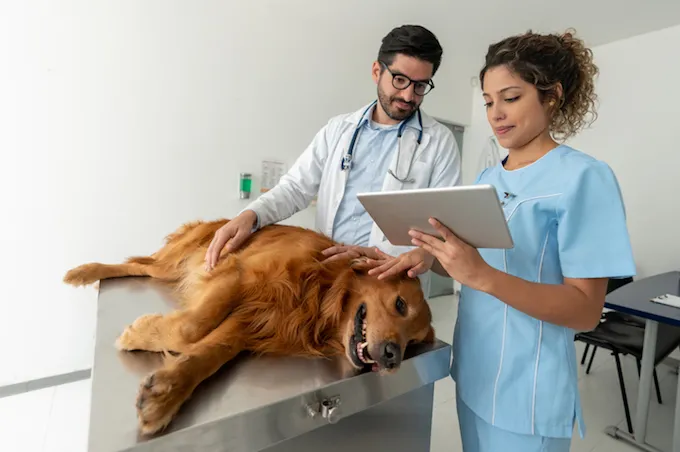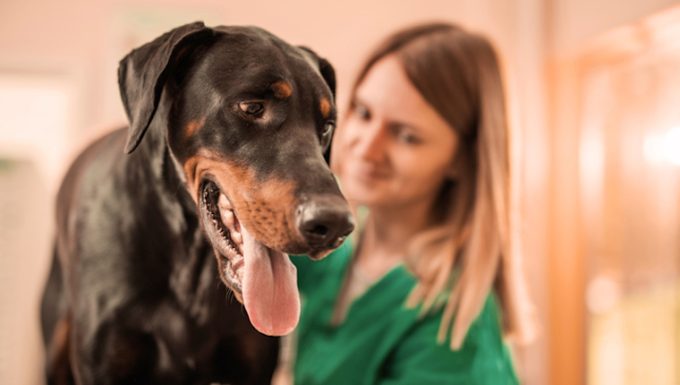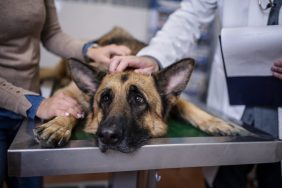Nerve sheath tumor in dogs is a condition that takes root in the nervous system. The tumors can be benign or malignant — although both types need treating.
Unfortunately, the condition is most common in older dogs. Additionally, certain breeds including Golden Retrievers, Boxers, and Labrador Retrievers develop the condition more than usual.
Technically, the condition is also known as schwannoma in dogs.
If you see the signs of the condition in your dog, then get to a veterinarian for a proper diagnosis and treatment.
Here’s what you should know about the symptoms, causes, and treatments for the condition.
Symptoms of Nerve Sheath Tumor in Dogs
The condition produces a small range of symptoms. For instance, the most common symptoms include:
- Lame hind legs
- Muscle atrophy
- Drooping eyelids
- Pupils getting smaller
- Problems walking
- Swelling
- Pain
- Horner’s syndrome
Causes of Nerve Sheath Tumor in Dogs

The cause of the condition is unfortunately unknown. This means that it is called idiopathic.
Generally, older dogs develop the condition much more frequently than younger pups. For example, it is estimated that dogs older than nine years of age are most at risk of the condition.
Also, the following breeds seem more likely to be predisposed to the condition:
- Golden Retriever
- Collie
- Labrador Retriever
- Boxer
Treatments for Nerve Sheath Tumor in Dogs
Firstly, your vet will ask about your dog’s symptoms. Secondly, your vet will ask about your dog’s full medical history. This will include breed-specific problems.
Thirdly, your vet will carry out a full physical examination. Blood and urine tests will also be taken. Additionally, imaging techniques such as MRIs and CT scans can help to diagnose the condition.
Generally, treatment involves a surgery to remove any tumors. Unfortunately, in some cases this will mean any affected limbs need to be amputated.
Radiotherapy can also be an option in some cases. Your vet can help you weigh up this decision.
Finally, while recovering at home, it is important to provide your dog with a calm and quiet environment.
Have you ever cared for a dog who suffered from this condition? How did your vet help your dog recover? Let us know in the comments section below.









